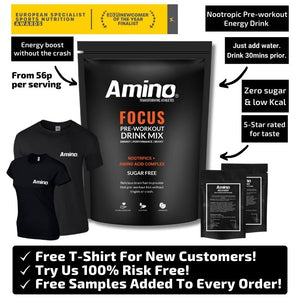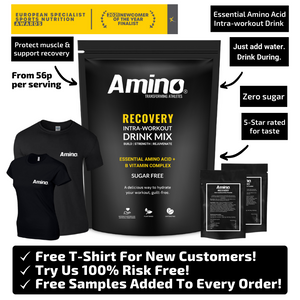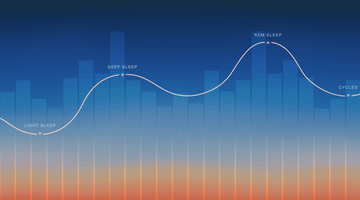Scared about losing your muscle gains by taking a break? Turns out, having a gym break can give you a much-needed boost and help you to come back even stronger. Read on to find out more.
When you’re determined to meet your fitness or strength goals, just the idea of taking a gym break for a day, or even longer, can make us sprint back into the gym in a cold sweat.
But having some gym rest time doesn’t mean that you’ll lose all your hard work. In fact, giving yourself some time for muscle recovery can be beneficial, and could even make you stronger.
Why is muscle recovery important in strength training?
When you work out, your muscles become damaged due to micro tears. This damage can be increased by lifting heavier weights, lifting more reps, or by using larger ranges of motion, for example.
To repair these tears, your body has to synthesise new muscle protein. The more damage to your muscles, the longer the period of muscle protein synthesis. This process happens after you have been to the gym, not during. This means that gains to your fitness and strength occur during your recovery time, not while you’re actually pumping iron.
As a result, if you don’t take training breaks and give your body enough time to synthesise protein between workouts, the damage to your muscles will be greater than the amount of repair made to them. This can lead to injury – and even muscle loss.
This may also increase your risk of overtraining, which can push your body into a kind of survival mode. This is because your body will also not be getting enough time to replenish its glycogen stores for energy.
Symptoms of overtraining can include:
- Greater fatigue
- Changes in your mood or increased anxiety
- Finding your workouts harder than normal
- Insomnia
Insomnia may seem like an unusual side effect of overtraining, but this is because exercise places stress on your body.
When your body is stressed, it releases the hormones adrenaline and cortisol. In the right conditions, these can help you to get pumped up for a workout. However, if you are constantly exercising with no downtime, your body will overproduce these hormones. This will inhibit your ability to sleep, setting off a vicious cycle of fatigue.
Will resting make me lose muscle?
Research has shown that you would need to experience a long period of inactivity before you begin to lose muscle mass.
A systematic review on Rugby Union, Rugby League and American football players, for example, found that strength levels could actually be maintained for up to 3 weeks after training was halted.
Another study, carried out in 2012, revealed that the gains of continuous exercising were actually similar to those achieved by a group who took three-week rest breaks.
This could be because enjoying a period of rest means that when you do work out again, your body is more sensitive to the stimulus of strength training. It could also be that the long recovery periods left the participants feeling less fatigued, which allowed them to train harder or at greater volumes.
How long should my training breaks be?
The amount of time you need for training breaks, and how often you should have a longer period of recovery, will depend on:
- Your age (the older you are, the slower your recovery will be).
- The level of your workouts (maximum effort will require longer breaks).
- Other stressors in your life (stress from work or family life can add to the stress put on your body by exercising).
After a workout, your muscles will be fatigued and your strength will be temporarily reduced. To avoid performance loss, your recovery period should therefore cover the time it takes for your strength to return to its pre-workout state.
For this reason, you should try not to exercise the same muscle groups two days in a row. For example, if you did a workout focused on your legs, you should leave at least one day, or even two, for muscle recovery time before you work this muscle group again.
To give your body a thorough refresh and your mind a reset, you may want to try introducing a full week of gym rest time every four to eight weeks. This will give your body more time to repair itself and for you to rebuild your motivation for the next block of training.
While you are resting, make sure you have plenty of sleep, are well hydrated and that you eat well. This will aid your muscle recovery. Essential Amino Acids (EAAs) supplements can help in this process and enable you to avoid muscle loss by stimulating and aiding the protein synthesis process to repair and rebuild your muscle. Our Amino RECOVERY can help with this, so make sure you take a look.
Enjoyed this article?
If you want more useful information about supporting your strength training, sign up to our weekly newsletter.






